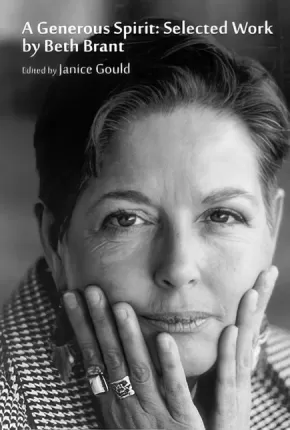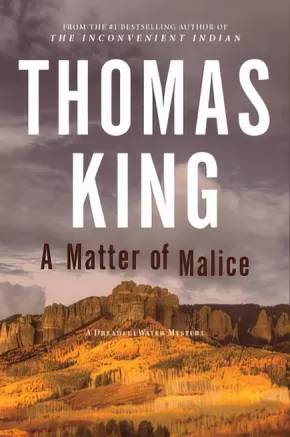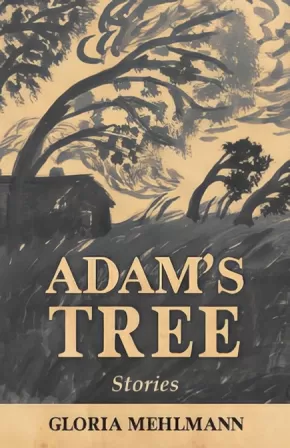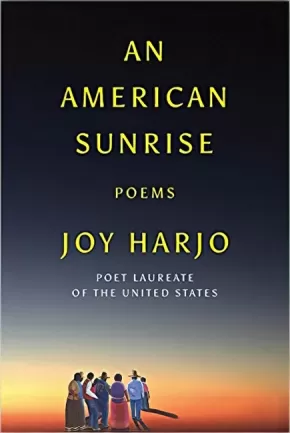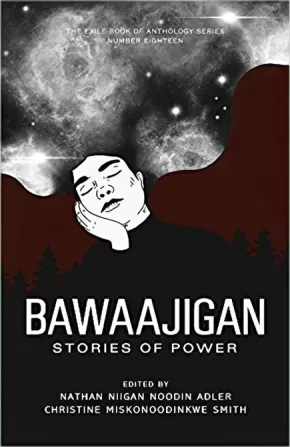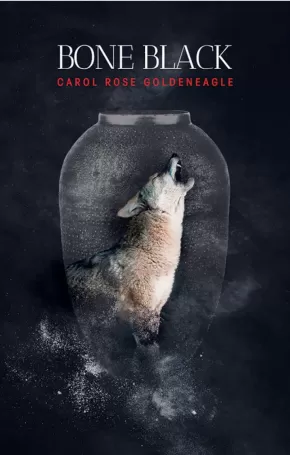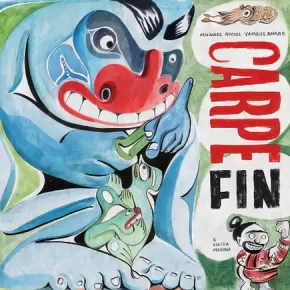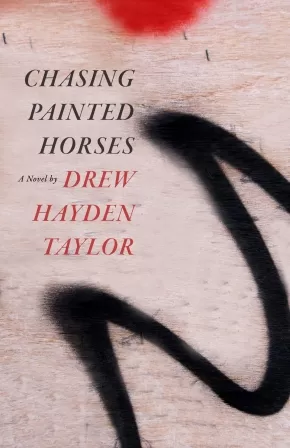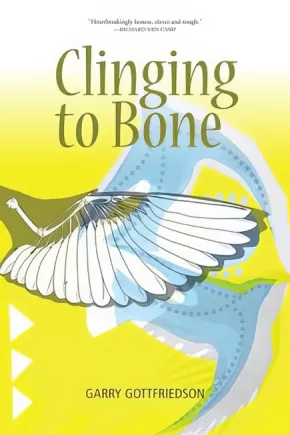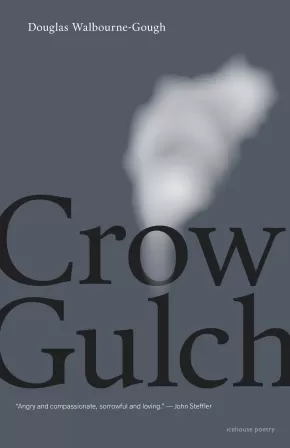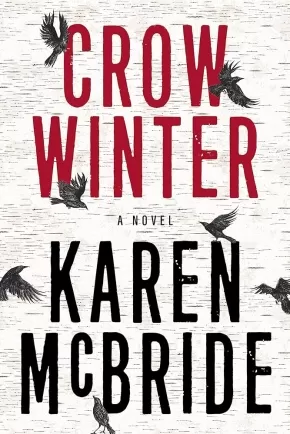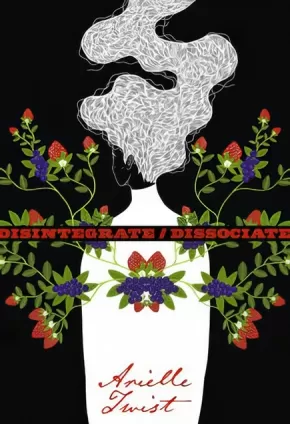
Fiction
346
-
360
of
568 Results;
Sort By
Go To
of 38
A Generous Spirit: Selected Works by Beth Brant
$22.95
Editors:
Format:
Paperback
Text Content Territories:
Indigenous Canadian; First Nations; Haudenosaunee (Iroquois); Kanyen'keha:ka (Mohawk); Tyendinaga;
Grade Levels: University/College;
ISBN / Barcode: 9781771336857
Synopsis:
Synopsis:
A Generous Spirit: Selected Work by Beth Brant collects the writing of Beth Brant, Mohawk lesbian poet, essayist, and activist. During her life, Brant's work gave voice to an often unacknowledged Two-Spirit identity, and today, her words represent continued strength, growth, and connection in the face of deep suffering. A Generous Spirit is Brant's portrait of survival and empathy at the intersection of Native American and lesbian experience.
Edited by noted Native poet and scholar Janice Gould, A Generous Spirit recounts and enacts the continuance of her people and her sisters with distinct, organic voices and Brant's characteristic warmth. Her work is a simultaneous cry of grief and celebration of human compassion and connection in its shared experience. Through storytelling, her characters wrest their own voices from years of silence and find communion with other souls.
Additional Information
200 pages | 5.37" x 8.50"
A Matter of Malice
$22.99
Format:
Paperback
Text Content Territories:
Indigenous American; Native American; Cherokee;
Grade Levels: 12; University/College;
ISBN / Barcode: 9781443455176
Synopsis:
Synopsis:
When a TV producer asks Thumps to assist with an episode about a local woman from a wealthy family whose death was ruled “misadventure,” he is reluctant to get involved. Then the producer dies in the exact same manner, and Thumps finds himself solving two cases.
Can a reality TV show solve a cold case?
The crew of a true-crime reality TV show, Malice Aforethought, shows up in Chinook to do an episode about the death of Trudy Samuels. Trudy’s death had originally been ruled accidental, but with ratings in mind, one of the producers, Nina Maslow, wants to prove it was murder. And she wants Thumps to help. Thumps is reluctant to get involved until Nina dies in the exact same place and in the exact same way as Trudy. Are the two deaths related? Or are there two murderers on the loose in Chinook? Thumps uses Nina’s Malice Aforethought files to try to fit the pieces of the puzzle together, and in the process discovers that she had already started work on another case close to Thumps' heart: the Obsidian murders.
Series Information
This novel is part of the DreadfulWater Mystery series from Thomas King. Books in this series include:
- Dreadful Water
- The Red Power Murders
- Cold Skies
- A Matter of Malice
- The Obsidian Murders
- Deep House
- Double Eagle
- Black Ice
Additional Information
|
Adam's Tree
$22.00
Format:
Paperback
Text Content Territories:
Indigenous Canadian; First Nations; Anishinaabeg; Ojibway; Saulteaux;
Grade Levels: 12; University/College;
ISBN / Barcode: 9781989274057
Synopsis:
Synopsis:
Adam's Tree is a fictional account of life on the Cowesses First Nation in Saskatchewan during the 1940's and 50's. This period in history finds forces like regulatory policy, World War II, systemic racism, and the long reach of the depression defining reserve life and rural relationships. These short stories are told from the perspective of various characters on the reserve: an Indigenous teenage girl named Sophie, men who return to Cowesses after the war, struggling with untreated and unacknowledged PTSD, settlers like the local school teacher and the "Indian agent".
This book contributes to the dialogue on reconciliation, freeing Indigenous voices during a period of time that is rarely written about. It encourages readers to examine the sources and meaning of today's inheritance of complex relations.
Additional Information
220 pages | 5.50" x 8.50"
An American Sunrise: Poems
$34.95
Format:
Hardcover
Text Content Territories:
Indigenous American; Native American; Muscogee (Creek);
Grade Levels: University/College;
ISBN / Barcode: 9781324003861
Synopsis:
Synopsis:
A stunning new volume from the first Native American Poet Laureate of the United States, informed by her tribal history and connection to the land.
In the early 1800s, the Mvskoke people were forcibly removed from their original lands east of the Mississippi to Indian Territory, which is now part of Oklahoma. Two hundred years later, Joy Harjo returns to her family’s lands and opens a dialogue with history. In An American Sunrise, Harjo finds blessings in the abundance of her homeland and confronts the site where her people, and other indigenous families, essentially disappeared. From her memory of her mother’s death, to her beginnings in the native rights movement, to the fresh road with her beloved, Harjo’s personal life intertwines with tribal histories to create a space for renewed beginnings. Her poems sing of beauty and survival, illuminating a spirituality that connects her to her ancestors and thrums with the quiet anger of living in the ruins of injustice. A descendent of storytellers and “one of our finest—and most complicated—poets” (Los Angeles Review of Books), Joy Harjo continues her legacy with this latest powerful collection.
Additional Information
144 pages | 5.50" x 8.25"
Bawaajigan: Stories of Power
$32.95
Format:
Paperback
Text Content Territories:
Indigenous Canadian;
ISBN / Barcode: 9781550968415
Synopsis:
Synopsis:
Bawaajigan—an Anishinaabemowin word for dream or vision—is a collection of powerful short fiction (urban-fantasy and high-fantasy; alternative histories, and alternative realities; brushes with the supernatural, the prophetic, the hallucinatory, and the surreal) by Indigenous writers from across Turtle Island. Contributors Richard Van Camp, Autumn Bernhardt, Brittany Johnson, Gord Grisenthwaite, Joanne Arnott, Delani Valin, Cathy Smith, David Geary, Yugcetun Anderson, Gerald Silliker Pisim Maskwa, Karen Lee White, Sara Kathryn General, Nathan Niigan Noodin Adler, Francine Cunningham, Christine Miskonoodinkwe Smith, Lee Maracle, Wendy Bone bring you tales about the state of sleep-deprivation where dreams end and reality begins; the tension of television static that conjures a certainty of something terrible about to happen; encounters with spirit guides and spirit enemies; confrontations with ghosts haunting Residential School hallways, and ghosts looking on from the afterlife; and more. These are stories about the strength and power of dream.
Educator Information
This book is number 18 in The Exile Book of Anthology Series.
Additional Information
257 pages | 5.50" x 8.50"
Bone Black
$21.95
Format:
Paperback
Text Content Territories:
Indigenous Canadian;
Grade Levels: 12; University/College;
ISBN / Barcode: 9780889713642
Synopsis:
Synopsis:
There are too many stories about Indigenous women who go missing or are murdered, and it doesn’t seem as though official sources such as government, police or the courts respond in a way that works toward finding justice or even solutions. At least that is the way Wren StrongEagle sees it.
Wren is devastated when her twin sister, Raven, mysteriously disappears after the two spend an evening visiting at a local pub. When Wren files a missing persons report with the local police, she is dismissed and becomes convinced the case will not be properly investigated. As she follows media reports, Wren realizes that the same heartbreak she’s feeling is the same for too many families, indeed for whole Nations. Something within Wren snaps and she decides to take justice into her own hands. She soon disappears into a darkness, struggling to come to terms with the type of justice she delivers. Throughout her choices, and every step along the way, Wren feels as though she is being guided. But, by what?
Additional Information
256 pages | 5.50" x 8.50"
Carpe Fin: A Haida Manga
$29.95
Artists:
Format:
Hardcover
Text Content Territories:
Indigenous Canadian; First Nations; Haida;
ISBN / Barcode: 9781771622240
Synopsis:
Synopsis:
“The ragged edges of the temperate rainforest reach far out onto an island in the western seas. It is a place where one chooses to go ahead or turn back…”
In a prequel to the award-winning Red: A Haida Manga, acclaimed artist Michael Nicoll Yahgulanaas blends Asian manhwa/manga with the Haida artistic and oral tradition in another stunning hand-painted volume.
In a small near-future community perched between the ocean and the northern temperate rainforest, a series of disasters is taking a heavy toll. It is early fall and a fuel spill has contaminated the marine foods the village was preparing to harvest. As food supplies dwindle, a small group decides to make a late-season expedition to search for sea lions. Surprised by a ferocious storm, they abandon one man, Carpe, on an isolated rock at sea. After ten days they are finally able to return, but he has vanished. The story follows Carpe’s encounters with the Lord of the Rock, who demands retribution for Carpe’s role in the hunt, and Carpe’s fate in the half-life between human and animal, life and death.
Educator & Series Information
Haida manga is a contemporary style of Haida comics and print cartoons that explores the elements of both traditional North Pacific Indigenous arts and narrative, while also adapting contemporary techniques of artistic design from the western portion of the North Pacific, namely the Japanese manga from which its name derives.
Additional Information
120 pages | 10.00" x 10.00" | 100 colour illustrations
Chasing Painted Horses
$32.95
Format:
Hardcover
Text Content Territories:
Indigenous Canadian;
ISBN / Barcode: 9781770865600
Synopsis:
Synopsis:
Chasing Painted Horses has a magical, fable-like quality. It is the story of four unlikely friends who live in Otter Lake, a reserve north of Toronto. Ralph and his sister, Shelley, live with their parents. On the cusp of becoming teenagers, they and their friend William befriend an odd little girl, from a dysfunctional family. Danielle, a timid 10-year-old girl, draws an amazing, arresting image of a horse that draws her loose group of friends into her fantasy world. But those friends are not ready for what that horse may mean or represent. It represents everything that’s wrong in the girl’s life and everything she wished it could be. And the trio who meet her and witness the creation of the horse, are left trying to figure out what the horse means to the girl, and later to them. And how to help the shy little girl.
Awards
- Winner of the 2020-2021 First Nation Communities Read: Indigenous Literature Award
Additional Information
6.00" x 9.00"
Children of God
$15.95
Format:
Paperback
Text Content Territories:
Indigenous Canadian; First Nations; Anishinaabeg; Oji-Cree;
ISBN / Barcode: 9781927922385
Synopsis:
Synopsis:
Children of God is a powerful musical about an Oji-Cree family whose children were taken away to a residential school in Northern Ontario. The play tells the story of one family: Tommy and Julia, who are trying to survive in the harsh environment of a religious school, and their mother, Rita, who never stops trying to get them back. The impact of this experience on the lives of them all is profound and devastating, yet the story moves toward redemption.
Children of God offers a thrilling blend of ancient traditions and contemporary realities, celebrating resilience and the power of the Indigenous cultural spirit.
Reviews
"Children of God is must-see theatre for Canadians."—Globe and Mail
"Powerful and profound...This is theatre that resonates on a deep emotional level."—Ottawa Citizen
"A significant success...beautiful and very powerful."—Vancouver Sun
Educator Information
A musical by Corey Payette. Contains references to sexual and physical abuse, as well as to trauma and suicide.
Recommended in the Canadian Indigenous Books for Schools 2019-2020 resource list as being useful for students in grades 10-12 for these subjects: Acting, Drama, English Language Arts, Social Studies.
Additional lnformation
80 pages | 5.50" x 8.60"
Clinging to Bone (2 in Stock)
$17.95
Format:
Paperback
Text Content Territories:
Indigenous Canadian; First Nations; Salish; Interior Salish; Secwepemc (Shuswap);
ISBN / Barcode: 9781553805625
Synopsis:
Synopsis:
Garry Gottfriedson's Clinging to Bone digs into the marrow, heart and soul of the human condition. Looking deeply into the Secwepemc (Shuswap) world of today, he examines betrayal, grief, love and survival. He states, "the broken winged sparrows are lost in flight, surviving starvation in the empty belly of wind." In "Foreigner" he describes how "my skin is the scent of Secwepemcúlucw / a rez Indian, a foreigner / in my own homeland / can you imagine that?" (where "Secwepemcúlucw" means land of the Shuswap). But he also sees humour in the very mechanics of surviving as an Indigenous individual in the Canada of today. His poetry will draw you into love, laughter and sorrow, but leave you contemplating your own survival. A glossary of Secwepemc words is included.
Reviews
"Secwepemc poet, rancher, and teacher Garry Gottfriedson brings themes of identity, environment, and politics in his newest work Clinging to Bone. This collection of poems emerges from Gottfriedson’s journey as a Secwepemc man growing up in his traditional territory. Throughout the work are many beautiful and colourful images of nature. His work explores how land shapes one’s identity and how concepts of home have been altered by settlement and colonialism. Gottfriedson also touches upon many difficult intersections including Residential Schools, church abuses, and environmental destruction. In the end, his work is a (re)affirmation of
Secwepemc sovereignty through narratives of caregiving and relationship to place. Thought-provoking and accessible for high school students, this work is valuable in our schools today." - Canadian Indigenous Books for Schools 2020/2021
Educator Information
Recommended in the Canadian Indigenous Books for Schools 2020/2021 resource list for grades 11 and 12 for English, Creativie Writing, Literary Studies and Social Justice. Also a useful for Teacher Resource.
Additional Information
100 pages | 6.00" x 9.00"
Cottagers and Indians
$16.95
Format:
Paperback
Text Content Territories:
Indigenous Canadian; First Nations; Anishinaabeg;
ISBN / Barcode: 9781772012309
Synopsis:
Synopsis:
Cottagers and Indians explores the politics and issues surrounding a real-life event still occurring in the Kawartha Lakes region of Central Ontario. An Indigenous man, Arthur Copper, has taken it upon himself to repopulate the nearby lakes with wild rice, known amongst the Anishnawbe as Manoomin, much to the disapproval of the local non-Indigenous cottagers, Maureen Poole in particular. She feels the plant interferes with boating, fishing, swimming, and is generally an eyesore that brings down the property values of her cottage and those of her neighbours. Drew Hayden Taylor’s thirty-second play is a powerful dramatization of contemporary confrontations taking place between environmentalism and consumerism, Indigenous and non-Indigenous sensibilities.
Reviews
"In Cottagers and Indians, an Anishnawbe man, Arthur Copper, decides to repopulate the lakes of his home Territory with manoomin, or wild rice – much to the disapproval of the local non-Indigenous cottagers, in particular the formidable Maureen Poole. Based on real-life events in Ontario’s Kawartha Lakes region, Cottagers and Indians infuses contemporary conflicts between Indigenous and non-Indigenous sensibilities with Drew Hayden Taylor’s characteristic warmth and humour." - Talon Books
Educator Information
Recommended in the Canadian Indigenous Books for Schools 2019-2020 resource list as being useful for grades 11 and 12 for courses in Arts Education, English Language Arts, Social Studies, and Theatre.
Additional Information
128 pages | 5.50" x 8.50"
Crow Gulch
$19.95
Format:
Paperback
Text Content Territories:
Indigenous Canadian; First Nations; Mi'kmaq;
Grade Levels: 12; University/College;
ISBN / Barcode: 9781773101019
Synopsis:
Synopsis:
From the author: I cannot let the story of Crow Gulch — the story of my family and, subsequently, my own story — go untold. This book is my attempt to resurrect dialogue and story, to honour who and where I come from, to remind Corner Brook of the glaring omission in its social history.
"These deeply engaging poems — courageous, shrewdly observed, disillusioned — give sharp, prsonal expression to the harsh-beautiful landscape of western Newfoundland, and the human community precariously, stubbornly rooted there." — John Steffler
In his debut poetry collection, Douglas Walbourne-Gough reflects on the legacy of a community that sat on the shore of the Bay of Islands, less than two kilometres west of downtown Corner Brook.
Crow Gulch began as a temporary shack town to house migrant workers in the 1920s during the construction of the pulp and paper mill. After the mill was complete, some of the residents, many of Indigenous ancestry, settled there permanently — including the poet's great-grandmother Amelia Campbell and her daughter, Ella — and those the locals called the "jackytars," a derogatory epithet used to describe someone of mixed French and Mi'kmaq descent. Many remained there until the late 1970s, when the settlement was forcibly abandoned and largely forgotten.
Walbourne-Gough lyrically sifts through archival memory and family accounts, resurrecting story and conversation, to patch together a history of a people and place. Here he finds his own identity within the legacy of Crow Gulch and reminds those who have forgotten of a glaring omission in history.
Reviews
"These deeply engaging poems — courageous, shrewdly observed, disillusioned — give sharp, personal expression to the harsh-beautiful landscape of western Newfoundland and the human community precariously, stubbornly rooted there. A sense of conflict drives through this work, a reflection of the traditional struggle to gain a living from the sea and rocky land but also a raw exploration of the conflict between poverty and privilege, honesty and propriety." — John Steffler, April 2019
"Crow Gulch announces an important poet. The differences Douglas Walbourne-Gough explores between class and ethnicities are as hard as Newfoundland's rock, as shifting as the foundations of a forcibly resettled Crow Gulch. This book is a conversation between a rude landscape, the displaced or dispossessed, and a narrator searching for belonging." — Stephanie McKenzie, April 2019
"Bent low and clund to a coast, Walbourne-Gough lets the land shape him. Brilliant and weathered observation interlaces family and archive to render present and necessary the memory of Crow Gulch. Here is a day's labour, a fretting walk along the tracks, a house 'that lets in snow at the seams,' grandmother's kitchen. Hear still 'her peals of laughter against the far shore and all that lives on in this book.'" — Cecily Nicholson, April 2019
Additional Information
80 pages | 5.50" x 8.50"
Crow Winter
$24.99
Format:
Paperback
Text Content Territories:
Indigenous Canadian; First Nations;
Grade Levels: 12; University/College;
ISBN / Barcode: 9781443459679
Synopsis:
Synopsis:
Nanabush. A name that has a certain weight on the tongue—a taste. Like lit sage in a windowless room or aluminum foil on a metal filling.
Trickster. Storyteller. Shape-shifter. An ancient troublemaker with the power to do great things, only he doesn’t want to put in the work.
Since coming home to Spirit Bear Point First Nation, Hazel Ellis has been dreaming of an old crow. He tells her he’s here to help her, save her. From what, exactly? Sure, her dad’s been dead for almost two years and she hasn’t quite reconciled that grief, but is that worth the time of an Algonquin demigod?
Soon Hazel learns that there’s more at play than just her own sadness and doubt. The quarry that’s been lying unsullied for over a century on her father’s property is stirring the old magic that crosses the boundaries between this world and the next. With the aid of Nanabush, Hazel must unravel a web of deceit that, if left untouched, could destroy her family and her home on both sides of the Medicine Wheel.
Reviews
“Full of spirit, love, mystery and good medicine, Crow Winter tells the story of Hazel and one very tricky little crow. Karen McBride’s debut novel ambitiously and successfully balances all these things creating a world and story that will stay with you after you have turned that last page.” - Katherena Vermette, award-winning author of The Break
"Algonquin Anishinaabe writer Karen McBride's debut is about a young woman who moves home to her First Nation reserve after losing her father. Dealing with grief and while memories are flooding her thoughts, Hazel's dreams are disturbed by her trickster kin, a crow, Nanabush.
As she starts to unravel her father's history with a local quarry, the crow is a constant companion and guides her to find the truth. The physical and spiritual worlds are seamlessly woven together, and we are taken inside the experience Hazel is having reconciling her truth with her father's and the imposing facts of the real world.
A lovely story full of spirit and imagery that stays with you long after the final page. Karen is a writer to watch." - Sandy, indieCHOICE
Additional Information
352 pages | 5.50" x 8.50"
Devil in the Woods: Poems
$20.00
Format:
Paperback
Text Content Territories:
Indigenous American; Native American; Anishinaabeg;
Grade Levels: 12; University/College;
ISBN / Barcode: 9781771315098
Synopsis:
Synopsis:
A collection of letter and prayer poems in which an Indigenous speaker engages with non-Indigenous famous Canadians.
D.A. Lockhart's stunning and subversive fourth collection gives us the words, thoughts, and experiences of an Anishinaabe guy from Central Ontario and the manner in which he interacts with central aspects and icons of settler Canadian culture. Riffing off Richard Hugo's 31 Letters and 13 Dreams, the work utilizes contemporary Indigenous poetics to carve out space for often ignored voices in dominant Canadian discourse (and in particular for a response to this dominance through the cultural background of an Indigenous person living on land that has been fundamentally changed by settler culture).
The letter poems comprise a large portion of this collection and are each addressed to specific key public figures--from Sarah Polley to Pierre Berton, k.d. lang to Robertson Davies, Don Cherry to Emily Carr. The second portion of the pieces are prayer poems, which tenderly illustrate hybrid notions of faith that have developed in contemporary Indigenous societies in response to modern and historical realities of life in Canada. Together, these poems act as a lyric whole to push back against the dominant view of Canadian political and pop-culture history and offer a view of a decolonized nation.
Because free double-doubles...
tease us like bureaucratic promises
of medical coverage and housing
not given to black mold and torn-
off siding. Oh Lord, let us sing anew,
in this pre-dawn light, a chorus
that shall not repeat Please Play Again. (from "Roll Up the Rim Prayer")
Reviews
"Rock-solid... full of heartfelt grit and conviction. D.A. Lockhart conjures the world through a catalogue of vivid particulars and a cast of inimitable characters, from Edna Puskamoose, a locally famous Pow-Wow dancer, to James Bond, that internationally notorious 'colonial trickster'. THis is poetry that follows the 'right crooked path' through 'the medicine smoke of history". - Campbell McGrath
Educator Information
Recommended in the Canadian Indigenous Books for Schools 2020/2021 resource list for grade 12 for English Language Arts and Social Studies.
Caution: Mature, foul language used throughout. The term "Indian" is also used throughout.
Additional Information
72 pages | 6.00" x 8.75"
Disintegrate/Dissociate
$16.95
Format:
Paperback
Text Content Territories:
Indigenous Canadian; First Nations; Cree (Nehiyawak);
Grade Levels: University/College;
ISBN / Barcode: 9781551527598
Synopsis:
Synopsis:
In her powerful debut collection of poetry, Arielle Twist unravels the complexities of human relationships after death and metamorphosis. In these spare yet powerful poems, she explores, with both rage and tenderness, the parameters of grief, trauma, displacement, and identity. Weaving together a past made murky by uncertainty and a present which exists in multitudes, Arielle Twist poetically navigates through what it means to be an Indigenous trans woman, discovering the possibilities of a hopeful future and a transcendent, beautiful path to regaining softness.
Awards
- 2020 Indigenous Voices Awards Winner for Published Poetry in English
Additional Information
|
Sort By
Go To
of 38

